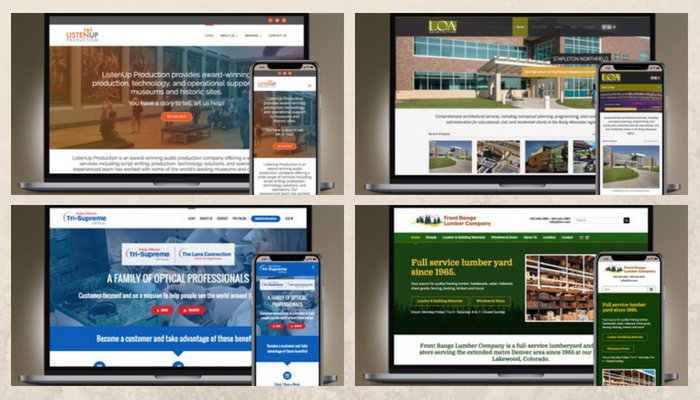Let’s start with: What is SEO and why SEO is important for your business to compete and succeed online.
Search engine optimization (SEO) is the process of optimizing a website so that it performs well in organic searches.
An organic search is the results Google displays when you type in your search terms and magically Google gives you the best results…thanks in part to those sites optimizing for search results…or SEO.
Ranking highly for search terms, also known as keywords, increases the visibility of your website (IMPORTANT) by bringing it to the top of search results (IMPORTANT) and leads to a higher number of visitors to your website (IMPORTANT).
Don’t delay any longer, now is the right time to evaluate your SEO strategy and examine the best ways to improve it.
Many people think of keywords when it comes to SEO, and focus a large part of their time trying to perfect the keywords and phrases they choose.
Keywords are all well and good, but your SEO efforts should not stop there.
Search engine algorithms rate the relevance of keywords on pages.
But they also evaluate other information, like the time visitors spend on your site, broken links on your site, inbound and outbound links, bounce rate, pages viewed and more.
5 things you can do to improve your SEO.
1. Provide useful well-written content.
Create high-quality content that is helpful and relevant to your target audience.
Visitors tend to stay on your website for a longer amount of time when you provide content that they want to read and find valuable.
Think of new ideas to expand your content, and make sure you think like a reader, rather than a search engine.
Longer content gives you the ability to provide greater value, include more keywords, add outbound links, and get people to stay on your page and spend more time reading.
Including internal links (links that take someone from one page on your site to another page on your site) is also important to retain your site visitors and offer them a great experience.
2. Improve page load speed.
People are impatient, and if your site doesn’t load quickly, they will most likely leave.
Pages that don’t open quickly increase your bounce rate, reducing the number of pages people view.
Both of these things hurt your SEO ranking.
Using caching plug-ins and making sure your site code is streamlined and clean, will help your pages load more quickly.
Also, minimize redirects and make sure all images are properly optimized to reduce file size improves speed.
Bing and Google both take page-loading speed into consideration when ranking websites.
3. Make sure your site is secure.
Hyper Text Transfer Protocol Secure (HTTPS) is the secure version of HTTP, the protocol over which data is sent between your browser and the website that you are connected to.
The ‘S’ at the end of HTTPS stands for ‘Secure’. It means all communications between your browser and the website are encrypted.
HTTPS offers an extra layer of security because it uses SSL to move data.
Google announced that SSL/HTTPS enabled websites will get more preference over the non-HTTPS versions.
What does that mean for your business? If you and your online competitors have similar websites with similar parameters … the website with HTTPS will be preferred by Google.
This will yield better Google rankings for your website.
4. Create Title Tags and Meta Descriptions that bring visitors to your site.
Title tags are displayed on search engine results pages (SERPs) as the clickable headline for a given result and are important for usability, SEO, and social sharing.
The title tag of a web page is meant to be an accurate and concise description of your page’s content.
Meta descriptions are HTML attributes that provide concise summaries of the page content.
They appear underneath the blue clickable links in a search engine results page (SERP).
Stand out from your competition by writing custom title tags and meta descriptions to encourage a click on your website!
5. Find and remove broken links.
Nobody likes to get a 404 page when are hoping to read useful information.
Broken links negatively impact usability, and search engines see numerous broken links as a sign of a neglected site, negatively impacting your SEO ranking.
Avoid linking to broken content, and also avoid having pages on your site that are broken.
If your site is small, you can check all links manually, but if you have a larger site, you can use a backlink checkers to see where you might need to do some link repair.
SEO is not a do-it-and-done deal if you want to stay competitive.
Ongoing SEO is necessary to increase and then maintain your visibility and rankings because your competition is out there doing the same thing!
Hire a firm that understands the ever-changing landscape of SEO so your money is not spent frivolously.
You can have the best store, the greatest food, or the most amazing service of any of your competitors, but if your customers can’t find you when they do a search, none of it will matter.
SEO is the ongoing exercise your website needs to be competitive in the marketplace.
An ongoing and measured SEO strategy is the key to attracting new potential customers and traffic to your website over time, increasing impressions, inquiries, leads, and sales.
These five suggestions are just some of the SEO steps you need to take to ensure your online visibility and success.
Contact us for your no-obligation free SEO evaluation.





